In the Dominican Republic IX.DO Begins Silent Production, with Several Committed Members

The Dominican Republic’s new Internet Exchange Point (IXP) already has 24 members, three of which began exchanging traffic in November 2020. Another four will start this quarter – including the largest operators in the country. The IX.DO was born after frustrated attempts. A government-led initiative in 2007 never became operational and the data center NAP […]
The post In the Dominican Republic IX.DO Begins Silent Production, with Several Committed Members appeared first on Internet Society.
Greening the Internet: Five Questions with Dr. Chomora Mikeka

Today is Earth Day, an international event celebrated around the world to pledge support for environmental protection. From small actions to large, we all have a role to play in protecting our planet. As we celebrate today, we’re shining a light on people like Chomora Mikeka, a scientist in Malawi and a recent awardee of […]
The post Greening the Internet: Five Questions with Dr. Chomora Mikeka appeared first on Internet Society.
Feedback Requested: Chartering the MANRS Community

While MANRS has gone from strength to strength since its beginning in 2014, gaining attention, interest, and credibility from network operators worldwide, for the initiative to be sustainable and impactful in the long run there should be a stronger sense of ownership by the community. MANRS is an industry-led initiative whose participants set and develop […]
The post Feedback Requested: Chartering the MANRS Community appeared first on Internet Society.
The Week in Internet News: Starlink Plans Broad Rollout

Internet from space: StarLink, the satellite-based Internet service from Elon Musk’s SpaceX, may exit its beta release around the middle of this year, Teslarati reports. Musk says the service is rapidly improving “service uptime, bandwidth, and latency.” Starlink should be broadly available later this year, with service also available for vehicles. A ban for all […]
The post The Week in Internet News: Starlink Plans Broad Rollout appeared first on Internet Society.
Bangkok’s Neutral Peering Hub Scales Its Capacity
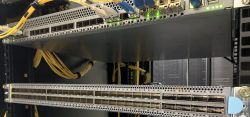
Bangkok Neutral Internet Exchange (BKNIX) recently expanded its Internet exchange capacity thanks to outstanding carrier-class equipment provided by the Internet Society In 2015, Bangkok Neutral Internet Exchange (BKNIX) was launched with the ambition to fix slow Internet, improve online experience for users, and lower the cost of Internet access for people in Thailand. BKNIX knew […]
The post Bangkok’s Neutral Peering Hub Scales Its Capacity appeared first on Internet Society.
Don’t Poke Holes in Our Digital Security Shield

In only a few days the European Union will close the doors on our chance to provide feedback on an initiative which could grant law enforcement agencies backdoor access to encrypted messaging services. Doing this would poke holes in our most important digital security shield. It misleadingly claims it to protect kids’ safety online. As […]
The post Don’t Poke Holes in Our Digital Security Shield appeared first on Internet Society.
Finally! Local Traffic Remained Local

During a recent broadcast of an Italian Series A Championship football match, something extraordinary was happening behind the scenes. Local Internet traffic remained local. Cristiano Zanforlin, Chief Commercial Officer of Milan Internet Exchange (MIX), Flavio Luciani, Chief Technology Officer of Consorzio Namex, and Luca Cicchelli, Interconnection Manager of Consorzio TOP-IX, explain how Italian IXPs helped […]
The post Finally! Local Traffic Remained Local appeared first on Internet Society.
The Week in Internet News: Encryption Faces Serious Threats

Encryption in danger: Encryption is essential, but a number of countries are trying to weaken its protections, Wired.com says. Recent attempts to weaken encryption have happened in Germany, Brazil, India, and other countries. “Technical as encryption can be, it is really about something at the very core of how we live our lives today: Should […]
The post The Week in Internet News: Encryption Faces Serious Threats appeared first on Internet Society.
After Two Decades, the Party Is Ready for the IXP in El Salvador

The history of El Salvador’s Internet exchange point (IXSal) is perhaps the longest and most complex, beginning at the end of the last century, in 1999, explains its founder, Lito Ibarra, with a smile. “It started out as a utopia after I started hearing about the experiences of other countries.” Ibarra wrote proposals and received […]
The post After Two Decades, the Party Is Ready for the IXP in El Salvador appeared first on Internet Society.
Sarantaporo.gr Community Network: Connecting Communities Is a Marathon, Not a Race
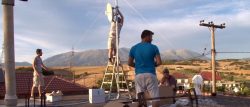
Last week we shared the story of how the Sarantaporo.gr Community Network worked with the community of Sykea to help with a pressing problem. Like many other villages in the Thessaly region in central Greece, it lacked access to the Internet. When an alternative solution to Sykea’s connectivity challenges was found, an opportunity opened up […]
The post Sarantaporo.gr Community Network: Connecting Communities Is a Marathon, Not a Race appeared first on Internet Society.
The Week in Internet News: Biden Wants Broadband for All
Filling the gaps: U.S. President Joe Biden has proposed spending $100 billion over eight years to bring broadband to all areas of the country, CNet reports. The broadband spending is part of a $2.25 trillion infrastructure proposal, which would also include repair of roads and bridges and improvements to the water supply and electrical grids. […]
The post The Week in Internet News: Biden Wants Broadband for All appeared first on Internet Society.
Sarantaporo.gr Community Network: Tending to Our Communities’ Needs with Care and Flexibility
At the beginning of May 2020, the Sarantaporo.gr community network team was approached by the Mayor of Elassona, a municipality in the Thessaly region in central Greece. He was asking for help with a very common problem that villages in our municipality face: lack of access to Internet connectivity. “Sykea” or “Sykia” is an isolated […]
The post Sarantaporo.gr Community Network: Tending to Our Communities’ Needs with Care and Flexibility appeared first on Internet Society.
Enough Is Enough: What Happens When Law Enforcement Bends Laws to Access Data
Tutanota co-founder Matthias Pfau explains how a recent court order is a wake-up call to end the encryption debate once and for all In a world increasingly reliant on the Internet in our day-to-day lives, there’s no turning back on encryption. Encryption is a critical security tool for citizens, businesses, and governments to communicate confidentially […]
The post Enough Is Enough: What Happens When Law Enforcement Bends Laws to Access Data appeared first on Internet Society.
The Week in Internet News: Facebook Calls for Changes in Legal Protections for User Content
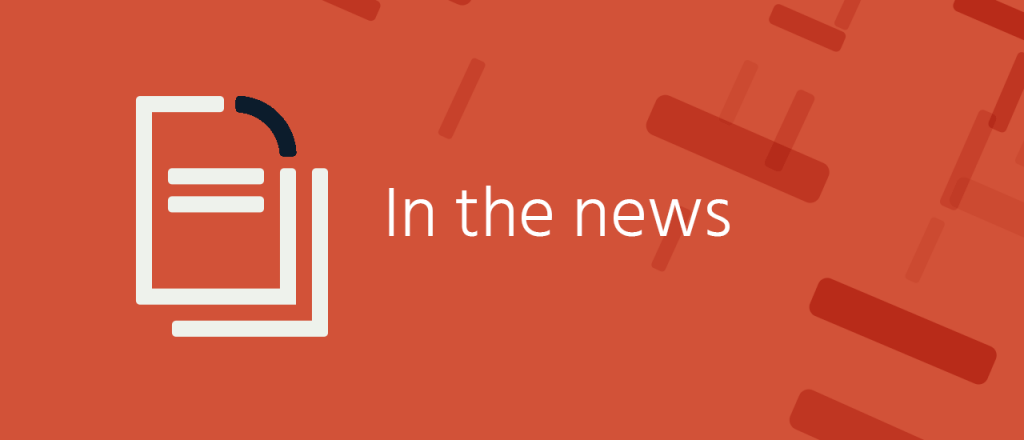
Rewriting the rules: Facebook, during a hearing in the U.S. Congress, called on lawmakers to revamp Section 230 of the Communications Decency Act of 1996, which protects websites from lawsuits for content posted by users, NBC News reports. Websites should be protected if they adopt user moderation practices largely in line with Facebook’s own rules, ZDNet noted. The change could give Facebook an advantage while upending much of the rest of the Internet, The Verge suggested.
Competition in space: The competition among satellite-based broadband providers is heating up, with OneWeb launching 36 new satellites from eastern Russia, The BBC reports. The company, now primarily owned by Indian conglomerate Bharti Global and the U.K. government, now has 146 broadband satellites deployed. The company plans to offer broadband service later this year to northern latitudes, including the U.K., Northern Europe, Alaska, Canada, and other areas. Meanwhile, three rural counties in North Carolina are testing broadband service from SpaceX, another satellite provider, as a way to provide Internet service to students, GCN says.
Bad virus information: Facebook and Twitter have removed millions of posts containing misinformation about COVID-19 in recent months, The Straits Times reports. Since last year, Continue reading
In Yucatán, Mexico, IXSY Gets Its Watershed Moment
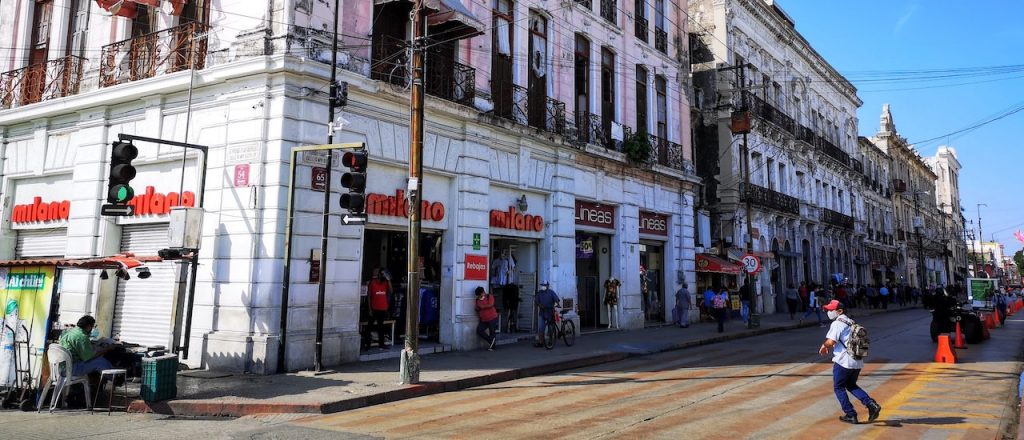
Despite being the second-most populated country in Latin America, with significant Internet consumption, by the end of 2019 Mexico only had one established Internet exchange point (IXP) – CITI, in three locations (Mexico City, Querétaro, and Tultitlán). In comparison, Argentina and Brazil have more than 30 points each.
In Mexico’s southeastern region – which has the country’s highest poverty rates and lowest connectivity – there were none. This prompted a committed group of people in the State of Yucatán to set out to create an IXP in 2014.
Their efforts intensified in April 2018, with the signing of the founding act for the Internet Exchange Services Yucatán (IXSY), a nonprofit association to administer the node in Yucatán.
In May 2018, the First National IXP Forum was organized. There, IXSY gained the support of Yucatan’s state government. But in July, that government lost the state elections, putting the project on pause.
Still, the new government didn’t take long to see the project’s relevance, says Carmen Denis Polanco, director of the IXSY. “It is beautiful and valuable that it did not become a political issue, but something that was important for the state. A new team of people was formed that could Continue reading
Shape the Internet’s Future with the Early Career Fellowship

Imagine a world where a global roster of Internet champions can stand up against the threats to the Internet.
This ideal was the inspiration for our new flagship program – the Early Career Fellowship!
This groundbreaking fellowship empowers a diverse new generation of Internet thinkers and doers.
The Early Career Fellows will have the opportunity to think, learning from Internet luminaries, today’s leading thinkers and organizations. They’ll explore topics like the Internet Ecosystem, Project Management & Advocacy, and the Internet Way of Thinking with Professor Dr Laura DeNardis of American University, scholars from the Oxford Internet Institute, and experts from the Internet Society, Diplo/GIP, Pyramid Learning and 89up.
The Fellows will also have the opportunity to do, getting direct support to nurture their professional growth. They’ll attend practical modules to help develop their own projects – bringing their ideas to life as they address the real-world challenges facing the future of the Internet.
These components, complemented with discussion, mentorship and leadership tracks, will:
- Increase the capacity of Internet champions through targeted educational and leadership development activities – and expand their expertise to support the development of the Internet
- Empower a cadre of talented early career professionals, giving Continue reading
The Week in Internet News: U.K. to Roll Out Gigabit Broadband
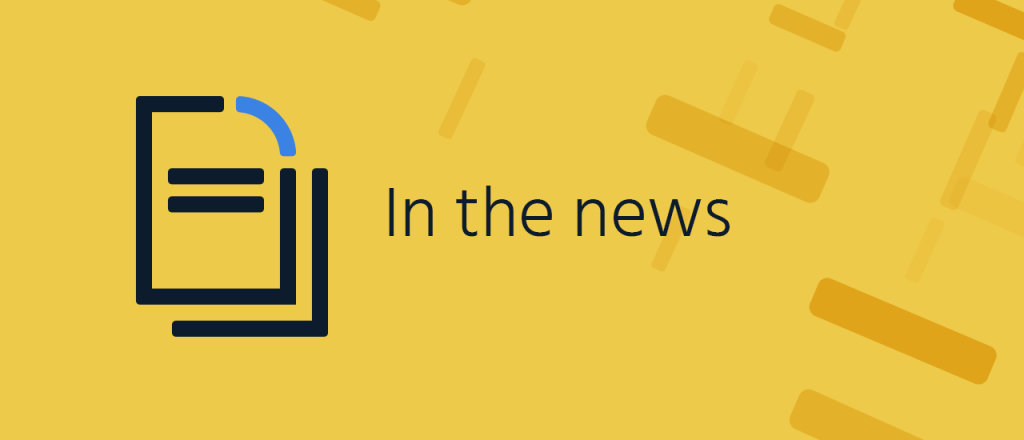
Blazing speeds: The U.K. government has announced the areas that will first get gigabit broadband service as part of an ambitious plan to roll out super high-speed Internet service to 85 percent of the nation by 2025, the BBC reports. First on the list are homes and businesses in Cambridgeshire, Cornwall, Cumbria, Dorset, Durham, Essex, Northumberland, South Tyneside, and Tees Valley.
Protect the DNS: The U.S. National Security Agency and the Cybersecurity and Infrastructure Security Agency are pushing for a new security service, called Protective DNS, for the Internet’s Domain Name System, Nextgov says. Protective DNS “is different from earlier security-related changes to DNS in that it is envisioned as a security service – not a protocol – that analyzes DNS queries and takes action to mitigate threats, leveraging the existing DNS protocol and architecture,” says a guide from the NSA and CISA. The goal is to foil more than 90 percent of all malware attacks.
Tracking all the phones: Apple is warning that Chinese app makers are creating workarounds for the company’s upcoming limits on ad tracking on its iPhones, the South China Morning Post writes. An upcoming software update from Apple requires users to give permission Continue reading
New Guide to Federal Broadband Funding Opportunities in the U.S.
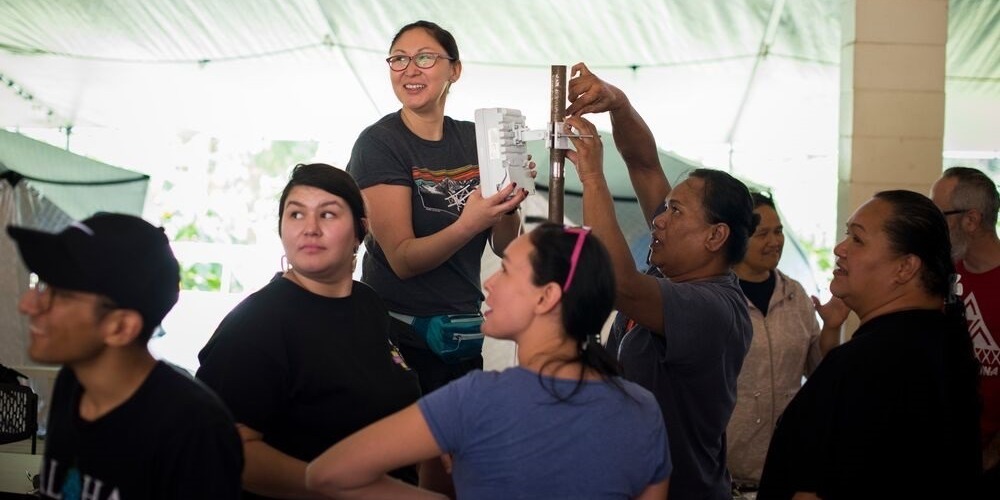
New resource will help communities find the right funding for their networks
At the 2020 Indigenous Connectivity Summit (ICS), participants asked the Internet Society to create a “centralized database that captures funding opportunities, eligibility, and information on how to apply.” There is currently no coordinated federal database where applicants can find all available funding sources. This is particularly challenging for those without Internet access – the intended benefactors of funding – as they are unable to surf the web to research all the different departments, commissions, and agencies that offer grants and loans related to Internet access.
Today, I am pleased to announce the launch of the Guide to Federal Broadband Opportunities in the U.S. By creating this consolidated resource, especially as large amounts of funding become available as a part of COVID-19 relief and Tribes begin utilizing their Educational Broadband Service spectrum, the Internet Society hopes to assist our community to access these vital funds.
Over the past three months, we have worked with our partners to create a comprehensive database of federal funding opportunities in the United States. These opportunities vary dramatically in size and include a variety of deployment and end-user scenarios. For example, Continue reading
Libraries Are Bridging the Digital Divide

Libraries and Community Networks are teaming up and discovering new ways to connect the unconnected
When the COVID-19 pandemic hit in early 2020, libraries across the world shut down their buildings to limit transmission of the virus. What did not shut down were the crucial services they provided. Instead, librarians stepped up and zeroed in on their passion to serve the public, acting as first responders and amplifying their steadfast commitment to ensure people have access to public information.
A year into this pandemic, Internet access is crucial. So many people need to be online for everything from school and work to getting updates about vaccinations. But lifesaving lockdown measures are presenting challenges to the ways many of us have been able to access the Internet in public spaces.
As COVID-19 exacerbates issues associated with lack of Internet access, libraries are playing even more of a key role in getting local communities online. This has happened in multiple creative ways, from turning bookmobile vans into roaming hot spots delivering Wi-Fi throughout the community, to extending library Wi-Fi access into the parking lot and beyond.
Libraries have a long history of working closely with community networks to provide affordable Internet access Continue reading
The Week in Internet News: Berners-Lee Warns of Growing Digital Divide
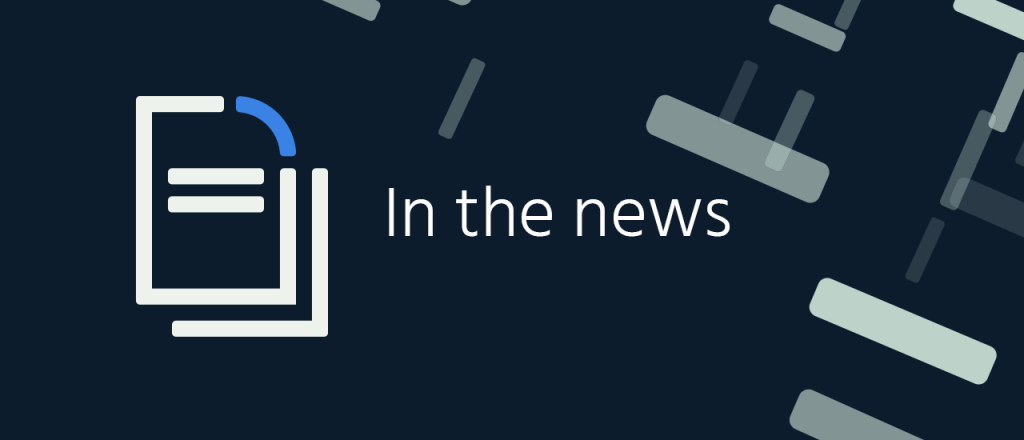
A big divide: Tim Berners-Lee, inventor of the World Wide Web, says the digital divide has grown during the COVID-19 pandemic, the BBC reports. He called on governments to provide universal broadband by 2030 in his annual letter marking the anniversary of the Web. About one-third of young people do not have Internet access and many more people lack connections that are good enough to allow them to work or learn from home.
Spy vs. spy: Hackers have breached surveillance camera data collected by Silicon Valley startup Verkada and gained access to live feeds of 150,000 security cameras inside hospitals, companies, police departments, prisons, and schools, Bloomberg reports. Live cameras inside Tesla factories, women’s health clinics, and psychiatric hospitals were also breached. The breach exposed the reach of surveillance, the Washington Post suggested, with one expert saying that “our desire for some fake sense of security is its own security threat.”
Drones to the rescue: A Wisconsin company is working on a way to use drones to provide reliable cellular service and Internet access to a rural area of the state, Wisconsin Public Radio reports. About 15 percent of the Northland Pine School District’s 1,340 students have no Continue reading